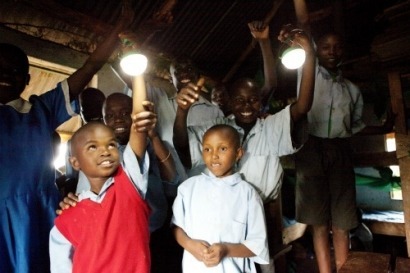
The Commonwealth Business Council’s second Energy Summit was a prestigious, two day event held at the end of March. Sworder reports that the event was well attended with distinguished speakers from Commonwealth countries in Africa and Asia and the UK, including heads of state, high commissioners, energy ministers, banks and a wide range of industrial and commercial company representatives.
The energy ministers gave perspectives on their countries’ energy realities and opportunities for investors and vendors. These presentations shared common themes.
In general, mains power access is limited, in the range of 45% to 65% of their populations, although for Sri Lanka this is 93%, a very significant achievement in light of their intense local challenges in recent years. Power generation capacity is close to presently possible maxima, and where it can be increased, the distribution grids are unable to deliver the additional power. Governments are caught on the horns of this dual dilemma.
With a clear appreciation of the importance of attracting foreign investors, the necessity of having a sound and well-enforced regulatory framework and stable government policy was highlighted by many speakers and participants, as was the importance of an efficient energy market.
It was widely recognised that financing, planning, constructing and maintaining adequate power generation and the distribution grids required to meet burgeoning demand caused by population and economic growth are immense challenges. Many doubt their ability to find the necessary finance and build the infrastructure sufficiently quickly even to meet, let alone overtake, the demand growth curve.
The International Energy Agency has published several reports on this topic. Their Comparative Study on Rural Electrification Policies in Emerging Economies 2010 being particularly interesting. It highlights the importance of developing an energy mix, using fossil and renewable sources as more likely to deliver what is required in terms of carbon emission reductions and power. In this context, several of the exciting new oil and gas discoveries in Africa were described, with the potential for National infrastructure investment to benefit the populations as a whole.
It was Lord Browne, previously CEO of BP Plc, who made the point that distributed power generation was becoming a real alternative approach to the traditional, centralised power generation and distribution grid model.
Turning to renewable energy technology, new power storage technology featured with a very interesting presentation by Highview Power Storage.
The countries’ perspectives pointed, inevitably, to the deployment of off-grid, community scale power generation, Its potential of requiring lower capital and maintenance costs and enabling swifter deployment gained considerable interest, and this is to be developed in the coming months.
Colin Sworder is adamant that off-grid distributed power generation, which he calls “Power Independence” is the way forward in many countries. “Power independence is of particular relevance to Asia, Africa and South America (and some US states in the summer) where load shedding by utilities results in power cuts during morning and afternoon peak hours, typically 2 to 4 hours each,” he says. “So imagine running your business, school or clinic with a 3-5 hour working day. In Nepal, 12 hour power cuts are predicted by 2014. As is clear, no progress, whether social, educational, health or economic is possible without consistent power and the communications revolution it enables.”
Kraft Maus recently started negotiations for a joint venture to launch Kraft Maus India, and the company now boasts a sales director who knows west coast South America well, a key region for our growth, says Sworder who ends that his company is now looking for equity investment; as the seed funding it started with has now taken Kraft Maus as far as it can.
For additional information:

